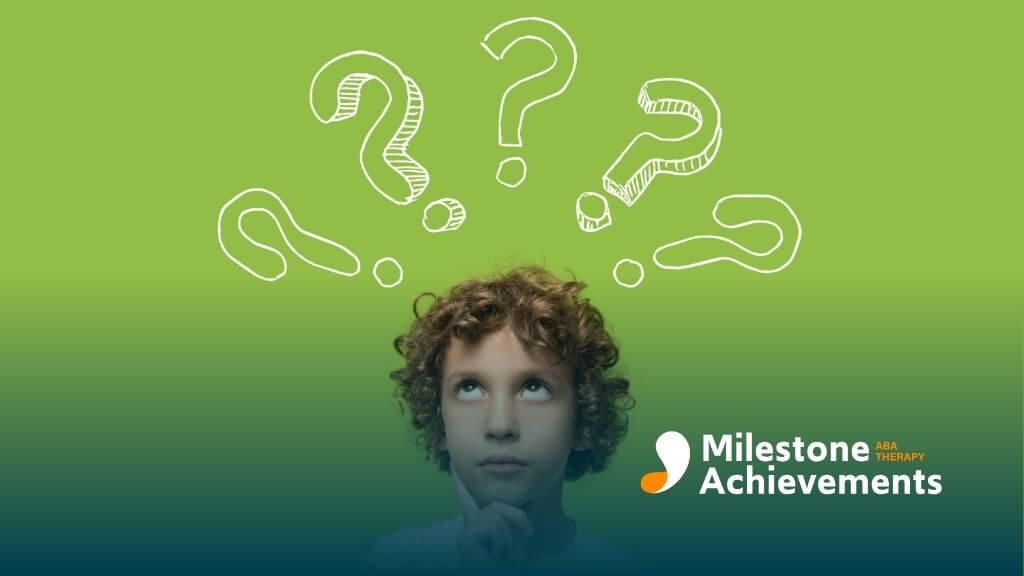
Who Qualifies for ABA Therapy? Understanding Eligibility, Benefits, and Pathways
Understand how ABA services for autism and related challenges can make a difference for individuals of all ages.
Applied Behavior Analysis (ABA) therapy is renowned for transforming lives by teaching crucial life skills and positive behaviors. But who qualifies for ABA therapy? This article is your guide about how ABA services for autism and related challenges can make a difference for individuals of all ages.
Introduction: The Power and Purpose of ABA
ABA therapy is a science-backed intervention used worldwide to help children and adults manage behavioral, communication, and adaptive living challenges. Traditionally known as the gold standard for autism treatment, ABA is now recognized for supporting a broader range of diagnoses and behavioral needs. But knowing who qualifies for ABA therapy ensures families receive the support and services they need at the right time.
1. Autism Spectrum Disorder (ASD): The Primary Group Who Qualifies
Children and adults diagnosed with Autism Spectrum Disorder (ASD) top the list of who qualifies for ABA therapy. A formal ASD diagnosis—usually from a developmental pediatrician, psychologist, or psychiatrist—typically serves as the main ticket for insurance coverage and access to ABA services for autism.
ABA is uniquely effective for teaching social, language, play, and self-care skills to people with autism. Medicaid and most private insurance plans in Georgia require an ASD diagnosis to authorize and fund ABA (as per Ava’s Law and Georgia Medicaid).
2. Developmental Delays and Intellectual Disabilities
Eligibility isn’t restricted to autism spectrum disorder. ABA therapy often helps people with intellectual disabilities, pervasive developmental disorders (PDD), speech and language delays, and other developmental conditions that impact functioning and day-to-day living.
Therapists use ABA to promote communication, teach foundational cognitive skills, and support independence. Children and adults struggling with milestones, even in the absence of ASD, may qualify after a clinical assessment.
3. Behavioral and Emotional Disorders
ABA’s methods apply to a range of behavioral health conditions, including Attention Deficit Hyperactivity Disorder (ADHD), Oppositional Defiant Disorder (ODD), Obsessive-Compulsive Disorder (OCD), and anxiety disorders. Many providers in Georgia see children with these diagnoses benefit behaviorally and academically through ABA therapy.
If challenging behaviors—like aggression, tantrums, noncompliance, or self-injury—impact daily life, families should explore if ABA is appropriate. Modern insurance in Georgia may cover ABA for non-ASD conditions with a medical necessity statement.
4. Social Communication Challenges
Social (pragmatic) communication disorder and other speech issues can cause friendship and school struggles. ABA services for autism, adapted for social skills, help individuals who find it hard to interpret social cues, stay on topic, or manage conversations.
If a child or adult is behind in social milestones or adaptive behaviors, an ABA evaluation may reveal candidacy, even without a formal ASD diagnosis.
5. Medical and Neurological Conditions Affecting Behavior
Conditions such as traumatic brain injury, early-onset dementia, brain development disorders, and severe epilepsy can result in behavioral issues that benefit from structured ABA intervention.
Families facing these unique medical situations find that ABA, sometimes in partnership with allied health professionals, supports skill recovery and emotional regulation.
6. Age Is Not a Barrier: Preschoolers, School-Age, Teens, and Adults
While research spotlights the power of starting young (ages 2–6), ABA therapy is an option at nearly any age. The best age for ABA therapy is early childhood, often before age four, but meaningful gains also appear in teenagers and adults when plans are developmentally appropriate.
Early intervention maximizes brain growth and skill acquisition. However, older children, teens, and adults with new diagnoses or ongoing behaviors can still qualify for and benefit from ABA.
7. Functional Need: Behaviors Interfering with Daily Life
Who qualifies for ABA therapy? Anyone whose behavior, communication, or adaptive skills limit independence, learning, and quality of life. Candidacy isn’t about labels alone, but whether ABA’s structured, data-driven methods can address specific challenges.
Therapists conduct clinical assessments—often involving direct observation, interviews, and standardized tests—to decide who qualifies for ABA therapy and what approach best fits their needs.
8. Insurance and Medicaid Requirements in Georgia
To secure coverage for ABA services in Georgia, most payers require medical documentation establishing diagnosis and need. Ava’s Law mandates insurance coverage for children up to age six and Medicaid extends services for individuals under 21 with ASD (and sometimes other behavioral needs).
A clinic like Milestone Achievements can help families navigate the qualification process, submit insurance paperwork, and clarify eligibility requirements.
9. Who Decides Candidacy?
Eligibility for ABA therapy is always determined by qualified professionals—usually Board Certified Behavior Analysts (BCBAs). A thorough clinical assessment weighs diagnosis, behavioral topography, daily impact, family input, and co-occurring needs.
This assessment ensures every plan is individualized, goal-directed, and appropriate, so resources are used effectively.
10. Can You Qualify for ABA Therapy Without an Autism Diagnosis?
While most public and private payers require an autism diagnosis, clinical need is the real qualifier. Non-ASD behavioral, social, or developmental concerns might qualify for ABA if appropriately documented.
Even when insurance doesn’t cover ABA for a non-ASD diagnosis, some families seek services privately to address behavioral challenges, social skills, or learning deficits.
How Milestone Achievements Makes the Difference
At Milestone Achievements, everyone receives a personalized, evidence-based assessment of needs regardless of age, diagnosis, or background. Here’s what sets us apart:
- Family-Centered Approach: Every assessment involves caregivers and educators, ensuring goals go beyond the clinic.
- Experienced Team: Board Certified Behavior Analysts (BCBAs) and Registered Behavior Technicians (RBTs) manage each client’s plan and progress, guided by the latest research and Georgia requirements.
- Transparent Navigation: Families receive step-by-step support through paperwork, insurance, and funding questions—removing barriers to access ABA therapy.
- Behavior Change for Real Life: Our focus is on meaningful progress, not just compliance—social skills, independence, and lifelong learning are at the core of every plan.
- Inclusive Services: Whether the client is a preschooler or a young adult, Milestone Achievements creates a supportive, fun, and motivating environment for learning.
Want to learn exactly who qualifies for ABA therapy in Georgia for your circumstances? Schedule a consultation with our friendly specialists today!
Sources:
- https://medicaid.georgia.gov/programs/all-programs/autism-spectrum-disorder
- https://www.appliedbehavioranalysisedu.org/georgia/
- https://www.appliedbehavioranalysisedu.org/2021/11/aba-for-non-autistic-children/
- https://www.autismspeaks.org/applied-behavior-analysis
- https://www.pediaplex.net/blog/what-is-aba-therapy-and-is-my-child-eligible
- https://drexel.edu/soe/resources/career-path/how-to-aba-therapist/


Partner with us on your child's journey
Milestone Achievements offers evidence-based ABA therapy to help children with autism reach their full potential. Together we’ll set meaningful goals and celebrate progress every step of the way.
Start ABA Services TodayFrequently Asked Questions (FAQs)
What are the 7 requirements of ABA?
The “7 dimensions of ABA”—Applied, Behavioral, Analytic, Technological, Conceptually Systematic, Effective, and Generality—are not requirements for candidacy, but they guide all ethical ABA programs. Requirements to start include clinical assessment, a behavioral or developmental challenge, and often a qualifying diagnosis.
What diagnosis do you need for ABA therapy?
Most commonly, an Autism Spectrum Disorder (ASD) diagnosis from a licensed professional is required for insurance to fund ABA therapy. However, other conditions—such as intellectual disabilities or ADHD—may also qualify for ABA, especially if insurance (or private pay) allows.
Who is a good candidate for ABA therapy?
A good candidate is anyone whose challenging behaviors, skill deficits, or developmental concerns make daily life, communication, or learning difficult. This includes people with autism, intellectual or developmental disabilities, ADHD, or significant behavioral issues.
What are the four types of behavior in ABA?
The four types are: socially mediated positive reinforcement, socially mediated negative reinforcement, automatic positive reinforcement, and automatic negative reinforcement. These describe how behaviors are learned and maintained.
What age is best for ABA therapy?
Early intervention—ideally beginning between ages 2 and 4—is considered most effective. However, meaningful benefits are seen at any age, with programs tailored for older children, teens, and adults.
What are the potential downsides of ABA therapy?
Potential downsides may include overly rigid programs, lack of individualization, or excessive focus on compliance. When not adapted properly, ABA may fail to respect individual needs, especially for neurodiverse individuals. Families should choose providers with transparent, respectful, and evidence-based practices.
Does ABA help with ADHD?
Yes! ABA has been shown in research and clinical practice to improve behavioral, social, self-regulation, and academic outcomes for individuals with ADHD, through structured intervention and positive reinforcement.






